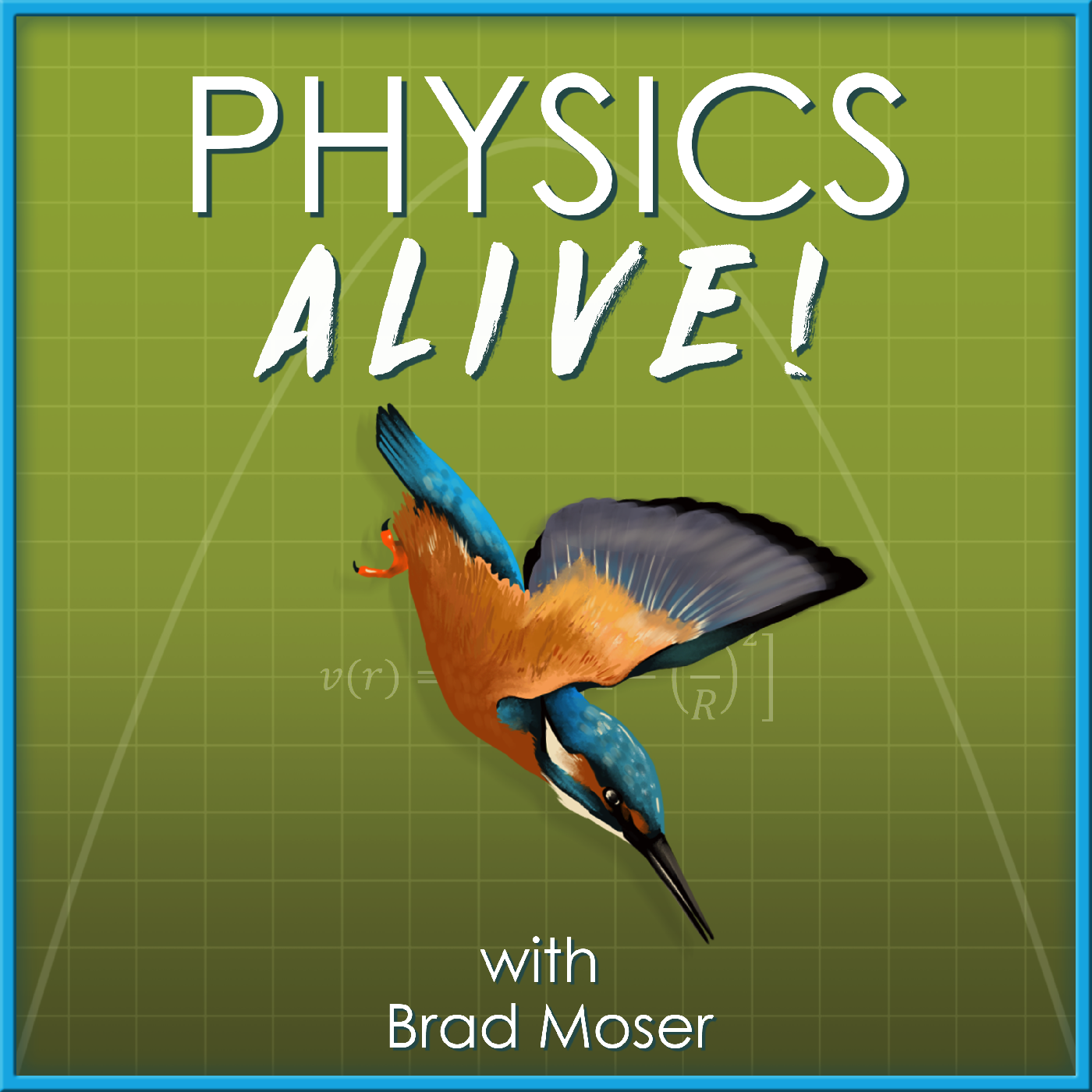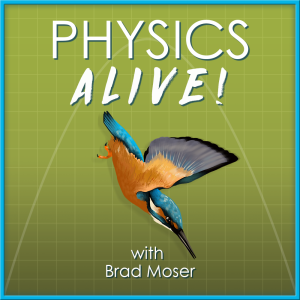
17.6K
Downloads
48
Episodes
Physics Alive is the podcast where host Brad Moser, Ph.D., sparks new life into the physics classroom. He speaks with researchers and textbook authors on the frontiers of physics education, life science and health professionals who use physics on an everyday basis, designers and engineers who learn from the natural world, teachers who employ innovative and active learning styles, and students who want the most out of their education.
Episodes

Saturday Nov 07, 2020
How a PhET is Made with Ariel Paul
Saturday Nov 07, 2020
Saturday Nov 07, 2020
For many physics educators, PhET’s are an essential teaching technology both in and out of the classroom. In this episode, I speak with Ariel Paul, the Director of Development for the PhET interactive simulation project. Ariel discusses the ins and outs of PhET development, how the team goes from an idea to a complete simulation in your web browser. We also talk about the educational goals a simulation is designed to meet and about research-backed ways to use PhET’s in the classroom.
Check out PhET interactive simulations here!
PhET stands for Physics Education Technology. Some popular sims:
“The real power of PhET simulations is their flexibility.”
The importance of implicit scaffolding, a design framework that reduces the amount of explicit instruction needed to facilitate learning.
- Article: Guiding Without Feeling Guided: Implicit Scaffolding Through Interactive Simulation Design
or at https://doi.org/10.1063/1.4789712
“Science is deeply satisfying and there’s a huge difference between something being fun and satisfying. There is a deep sense of satisfaction when you wrestle with an idea and understand it. So that’s our goal, I want science to be deeply engaging and deeply satisfying.”
What are some of the best ways to use PhET simulations in class?
- “We trust and respect the professionalism of teachers. Teachers know their classroom, so we want to make a tool that you can use any way that you want.” He does suggest that the sims should not be used in a cookbook approach where you describe every action you want the students to do.
- They’ve seen that sims work best in a guided inquiry mode. Pure play isn’t the most effective way. Do start an activity with a few minutes of open play, for ownership, for efficiency in knowing the controls, and for drawing the students in. Then, after students first play, go into guided inquiry.
- Try challenge-style questions. Example: how can you make the brightest light bulb with two light bulbs and one battery?
- Or make some experimental observations and then design your own experiment.
- Predictive-style clicker questions. “What do you think will happen when I do this in the simulation?”
Other related simulations and tools:
What next step would you encourage users to try to increase the pedagogical value of the sims?
- How can you make it the most scientific experience for the students? Can you make a challenge prompt, can you invite open play, can you use the simulation as an explanatory tool?

No comments yet. Be the first to say something!